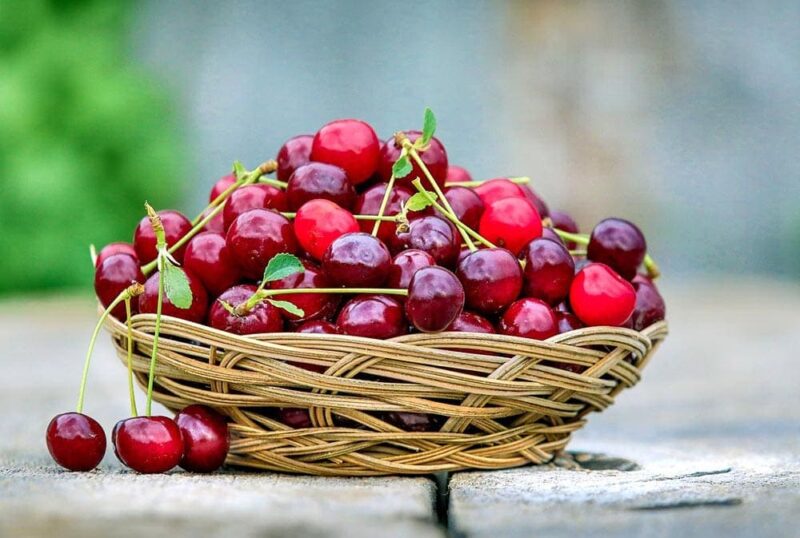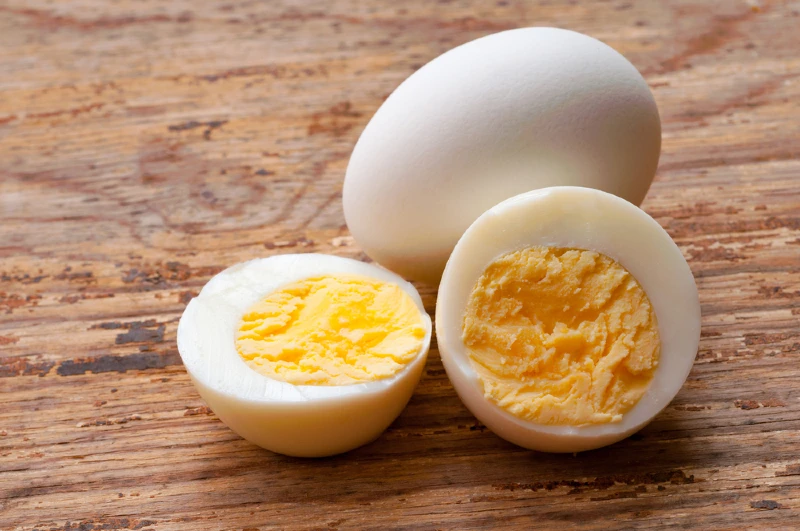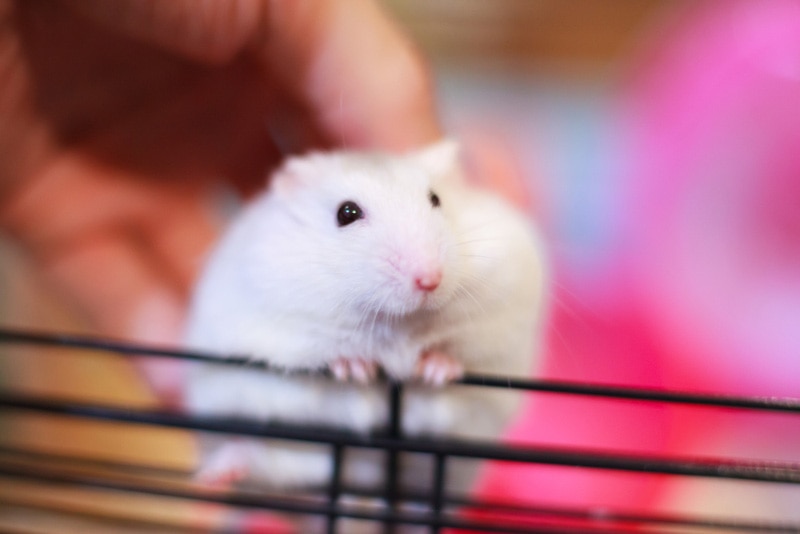Can Hamsters Eat Corn? Vet Approved Facts & FAQ
Updated on

Click to Skip Ahead
Hamsters make delightful animal companions for people looking for small and low-maintenance pets. While it’s fairly easy to care for these little rodents, it’s also often easy to make mistakes and feed them something that we shouldn’t.
A well-balanced diet is vital for a hamster’s development and well-being, so we need to be cautious about the foods that we offer pet hamsters. So, can hamsters eat corn?
In short, yes, hamsters can eat corn. Still, there are several things that you should know before you offer this treat to your furry companion, as not all hamsters react well to corn.
What Does a Healthy and Well-Balanced Hamster Diet Look Like?
Hamsters are omnivorous animals that can feed on an array of different insects and plants. In the wilderness, these critters consume seeds, larvae, crickets, and cereals. When they’re kept as pets, their diet should have all the essential nutrients that they would get in their natural environment. These rodents can get these nutrients from:
- Commercial pelleted hamster food
- Small amounts of vegetables and fruits
When it comes to feeding commercial pellets to your hamster, the average diet should roughly contain:
- 15–25% protein
- 35–40% carbohydrates
- 4–5% fat
- 5% crude fiber
Hamsters should also have access to fresh water throughout the day to stay hydrated.
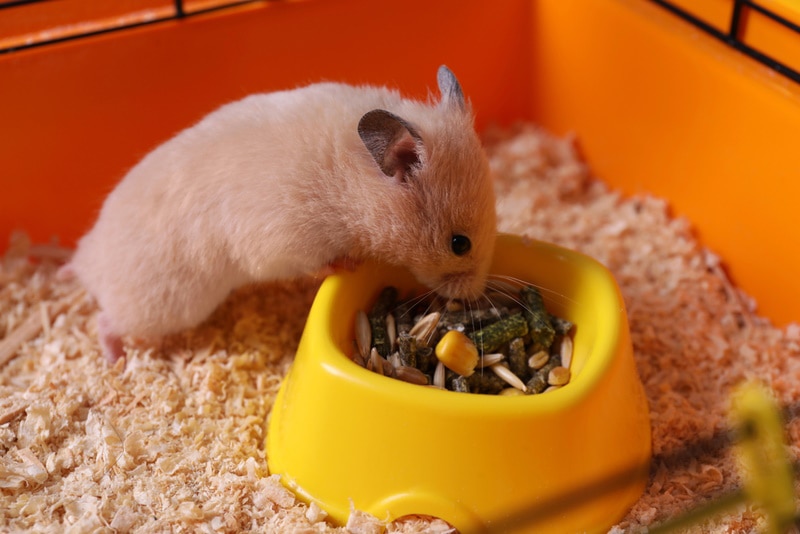
Corn General Nutritional Facts
To know if corn is healthy for hamsters and nutritious enough for their needs, we need to look into the nutrients in corn and consider their possible effect on these little rodents:
- Calories: 90 kcal
- Protein: 3 grams
- Fat: 1 grams
- Carbohydrates: 19 grams
- Fiber: 2 grams
- Sugars: 6 grams
- Vitamin C: 7 milligrams
Corn is rich in carbohydrates and low in fat and protein. It contains high levels of sugar and a decent amount of fiber. Corn is also a good source of water, vitamin C, vitamin B6, manganese, magnesium, and potassium.
Can All Hamsters Eat Corn?
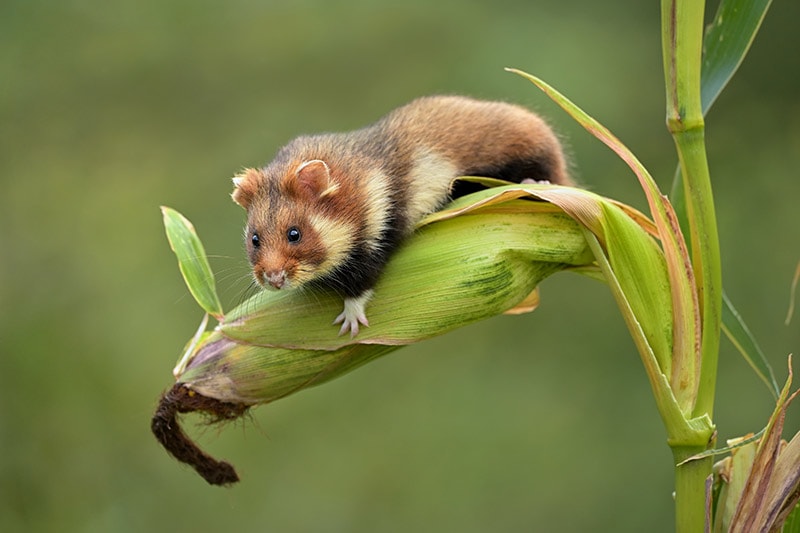
Theoretically speaking, hamsters can eat corn, but it is not the best choice of food for all hamster species. Some hamsters, such as Syrian and Roborovski hamsters, are much better at tolerating corn than dwarf hamster species. They can eat corn in moderation as treats; this vegetable shouldn’t be a part of their regular day-to-day diet.
But dwarf hamsters, such as the Campbell Dwarf, Russian Dwarf, and Winter White Dwarf hamsters, shouldn’t consume corn at all, if possible. These smaller hamster varieties are at higher risk of obesity and diabetes, which is why their diet shouldn’t contain foods high in sugar.
Is Corn Safe for Hamsters?
While low in protein and fat and high in carbohydrates, corn contains plenty of minerals and vitamins that can positively affect hamsters and their health. However, it also contains an acidic component, which could cause gastrointestinal upset in hamsters if ingested in large amounts. It’s also high in sugar and starch.
Overall, offering corn can be a cheap way to boost a hamster’s energy quickly, hence why it’s a common ingredient in many commercial hamster pellets. But on its own, this vegetable is not that nutritious for hamsters and won’t be a high-quality energy source. There are much better foods that you can include in your hamster’s diet.
If you still want to feed corn to your hamster, keep in mind that this veggie is only safe for Roborovski and Syrian hamsters. Other hamster varieties (dwarf hamsters) shouldn’t eat it.
Possible Risks of Feeding Corn to Hamsters
While eating corn is safe for several hamster species, this veggie is not the healthiest choice of treat that you can offer your hamster. In fact, consuming corn could cause several possible risks to hamsters, including:
- Choking — Eating corn can pose a choking hazard to hamsters, which is why it’s important to offer bite-sized pieces that your hamster can easily chew on.
- Obesity/Diabetes — Corn is high in carbohydrates and sugar, so dwarf hamsters should never eat corn due to the high possibility of obesity and diabetes. Large hamsters, such as the Syrian or Roborovski hamster, have less risk. Still, if they consume too much corn, these problems could also occur in these species.
- Gastrointestinal Problems — After eating corn, some hamsters can develop gastrointestinal upset, and could end up with diarrhea or vomiting.
There are also risks associated with feeding your hamster frozen corn, creamed corn, or similar products, as these are high in sodium. After consuming these corn foods, hamsters can experience urinary problems and develop kidney issues.
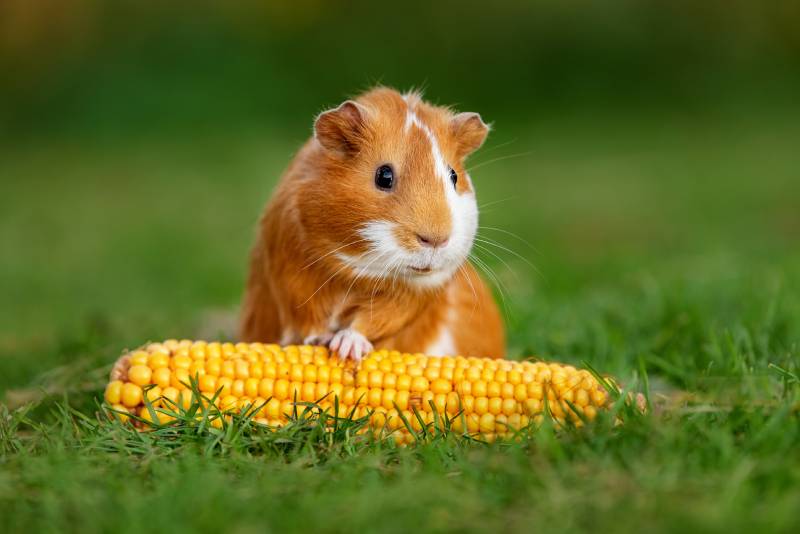
Things to Consider Before Offering Corn to Your Hamster
If you have a Roborovski or Syrian hamster, you can offer them corn on occasion, preferably only a couple of times a week. If you’ve never given corn to your hamster before, you need to know how to do it safely and reduce the chances of possible risks.
- Ensure that the corn is thoroughly washed before offering it to your hamster. It’s best to offer it cooked because it is easier for your hamster to eat
- The corn should be free of seasonings and oils, as these could harm your hamster.
- Start by offering small amounts of corn to your hamster to reduce the chances of digestive upset. You can gradually increase the amount of corn that you offer if your hamster reacts well, but still only offer it in moderation and as a treat.
- Don’t offer corn husks and cobs to your hamster.
- Never offer canned corn, cornmeal, creamed corn, or pickled corn to your hamster.
Canned corn can be particularly harmful to hamsters due to its high sodium levels; the situation is similar with creamed corn and pickled corn.
Frequently Asked Questions
How Much Corn Can Hamsters Eat?
When it comes to the safe amount of corn that hamsters can eat, know that this veggie should be provided only as an occasional treat. If you want to offer corn to your Syrian or Roborovski hamster, you can offer a couple of kernels every week.
Since corn is already included in most commercial hamster pellets, there’s no need to offer it more frequently.

Which Healthy Alternatives to Corn Can You Offer Your Hamster?
While corn can be beneficial for hamsters, most hamster varieties do better with other fruits and vegetables. That said, there are several healthy alternatives to corn that you can offer your hamster.
| Fruits | Vegetables |
| Pears | Pepper |
| Apples | Cucumber |
| Raisins | Lettuce |
| Banana | Broccoli |
| Peaches | Peas |
| Watermelon (without the seeds) | Parsnip |
Remember that the veggies and fruits on this list should also be fed as occasional treats only and should never entirely replace your hamster’s diet.
Final Thoughts
You can safely feed corn to your hamster unless they’re one of the dwarf hamster varieties; in that case, you should strive away from offering corn to your little companion. While corn can provide various health and nutritional benefits to hamsters, there are much better and healthier foods that you can include in your hamster’s diet.
Featured Image Credit: Lifestyle Travel Photo, Shutterstock


